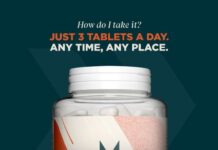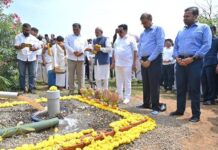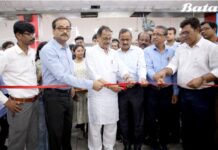Organised on 26th & 27th September 2019, Jacaranda Hall, India Habitat Centre, New Delhi, India
New Delhi, November 08, 2019: About 180 participants representing more than 75 social enterprises and NGOs from different countries took part in First Menstrual Hygiene Management Summit organised by Gramalaya. The two day summit was power packed with several panel discussions and plenary sessions conducted at three different halls in the India Habitat Centre, New Delhi.
Representatives from various Government organizations including Ministry of Health and Family Welfare, Government of India, NIRD, Hyderabad, Agencies, NGOs and International organizations like UNICEF, PATH India, WSSCC, India, WASH United interested in Menstrual Hygiene & management, specialists, Medical practitioners, University colleges and Research Institutions, Healthcare consultants, Vendors of menstrual products, and suppliers were present at the summit. It was very interesting to see Business entrepreneurs and start ups exploring MHM related initiatives who chose MHM India Summit 2019 as a valuable platform to showcase, network and promote their eco-friendly products and services.
The inaugural ceremony was magnificently conducted with the presence of Mr. Sujoy Majumdar, WASH Specialist, UNICEF India, Dr. Archana Patkar, Global Thought Leader – MHM, Ex Head of Policy at WSSCC, Ms.SnehaShergill, Mrs.India 2016, Brand Ambassador for MHM, Gramalaya, Mr. S.Damodaran, President – MHM Summit India 2019, CEO, Gramalaya, Sadhvi BhagawatiSaraswati, Ph.D, Parmarth Niketan Ashram, Rishikesh and Dr. Surbhi Singh, Sachhi Saheli.
Then, four plenary session and six breakaway sessions were held in the summit and experts in the field of MHM, Health, Environment, Gender and Nutrition discussed various topics especially upon issues related to Menstrual hygiene management and other women related topics. They also spoke about their experiences in MHM and Swachh Bharath Mission program menstrual waste management.
The summit was attended by 180 plus delegates including 46 speakers who are the MHM experts and champions in promoting Menstrual Hygiene. The delegates include eco friendly cloth sanitary pad manufacturers, medical practitioners, social entrepreneurs, Government officials, representatives of international organisations and NGOs working for WASH and MHM. There were exhibitors on MHM products including two sessions on do it yourself cloth pads stitching experience.
As a unique experience, the summit embraced a Nukkad Natak (skit play) by the Padbank, UP team and a one of a kind eco-friendly pad making demonstration and pad making experiential workshop conducted by Ms.Lakshmi Murthy, Founder Member, JatanSansthan. The summit encompassed a grand Valedictory Session and Award ceremony lead by Mr. S.Damodaran, President – MHM Summit India 2019, CEO, Gramalaya with Ms. Ena Singh, Assistant Representative, UNFPA and Mr.S.Paramasivan, Sanitation First, India. Gramalaya has conferred unsung hero awards for MHM Excellence to individuals and NGOs working on the MHM field and Eco-friendly alternatives.
The topics discussed at the MHM India Summit include:
In rural India people do not know really what is menstrual hygiene. Age old customs and beliefs such as – do not touch pickle, not to enter the house, etc., People in rural areas use various materials like jute, ash, etc., during the menstruation. Girls attaining puberty at very young tender age of 8/9 years due to various reasons.
Discussions also included, the availability of menstrual products; awareness among the menstruating women on the issues of good and bad practices during the menstrual periods. Rural girls using unhygienic practices and products. Products impact on the pocket of rural girls and women. With free availability and social acceptability of pad, environment is suffering and girls/women’s lack of knowledge to dispose the same gets challenging. Girls/women’s bodies are more susceptible to infections with poor management of products. Girls/women are nutritionally weak and their vulnerability increases. The lack of knowledge of proper ways to dispose the pads gets traumatic for girls.
Some of the issues raised by the speakers in the first session which are important:
Initiating a discussion on the needs of physically challenged people regarding safe sanitation. Orientation of people at Panchayat level. Sanitation facilities at public places. Focus of NGOs should not only be on school children but also upon communities.
Recommendations of the MHM India Summit held at New Delhi:
The Summit recommended the Government to ban the use and throw sanitary napkins which are harmful to women’s health and the environment. Without a ban on single use plastic sanitary napkins, we cannot prevent the menstrual waste in the country. Government should have to spend more money to repair the loss made by disposable sanitary napkins to human health and to our water resources. The Government menstrual waste management policy requires more attention on this in a manner of war footing.
The summit strongly recommended the Government, MHM volunteers and other stakeholders to encourage and support for eco friendly menstrual Hygiene products and women friendly ones. MHM education, promotion and menstrual waste management should be included in the school curriculum. Women and adolescent girls should be given MHM education in the rural and urban areas. Girls friendly school Toilet complexes should be promoted so that it would reduce the school drop outs and girls attend schools without absence during menstruation days.
Gramalaya has promoted 12 villages in Tamil Nadu with 100% Reusable Cloth pads using women and adolescent girls and 100% toilets coverage in the households stopping open defecation practices. ATK Nagar, Uppilikudi panchayat of Kunnandarkoil Block in Pudukottai District of Tamil Nadu is the India’s first village where 100% of the women and adolescent girls using reusable cloth pads as a part of menstrual Hygiene and preventing menstrual waste with 100 % toilet coverage as ODF zone declared by the District Collector through a stone inscription on 14th February 2019.
All the menstruating girls and women should be educated about the good and bad practices of poor MHM. The family members should support the girls and women during the periods and help them overcome the difficulties. Girls and Women have to be educated about the use of natural organic bio-degradable sanitary napkins. Girls and Women have to be educated about the correct and incorrect practices of personal hygiene during the periods.
Corporate Comm India(CCI Newswire)



























